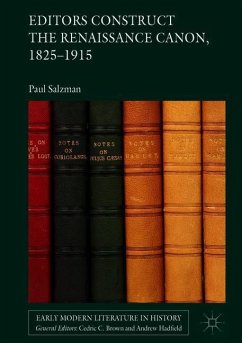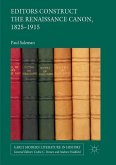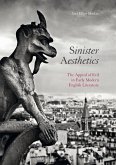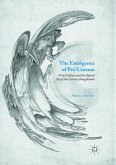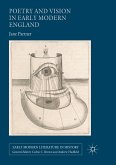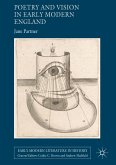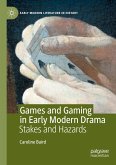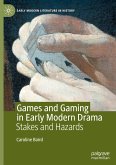This book argues that nineteenth-century editors created the modern idea of English Renaissance literature. The book analyses the theories and practices of editors who worked on Shakespeare, but also on complete editions of a remarkable range of early modern writers, from the early nineteenth century through to the early twentieth century. It reassesses the point at which purportedly more scientific theories of editing began the process of obscuring the work of these earlier editors. In recreating this largely ignored history, this book also addresses the current interest in the theory and practice of editing as it relates to new approaches to early modern writing, and to literary and book history, and the material conditions of the transmission of texts. Through a series of case studies, the book explores the way individual editors dealt with Renaissance literature and with changing ideas of how texts and their contexts might be represented.
"Salzman offers a balanced tour through a century of editorial practices. His synthesis of this history is poised to inform and extend our contemporary understanding of past and current approaches to early modern texts, bringing new comparisons to light and connecting them with elements of known history. ... this volume invites the interested expert or new reader to consider current approaches as part of a long history that informs contemporary criticism and reading." (Jennifer E. Nicholson, Parergon, Vol. 39 (1), 2022)
"A well-researched and interesting piece of work certainly deserves our praise and thanks for its clear and carefully documented presentation of the years of Renaissance and Shakespeare editions here under scrutiny. In his invaluable historical approach, Salzman provides us with a well-needed context making for a better understanding of the importance of the work of those nineteenth and early twentieth-century editors of Renaissance literature and culture to whom he is paying a justified tribute ... ." (François Laroque, Cercles, cercles.com, December 15, 2019)
"This compact, useful study of nineteenth- and early twentieth-century editorial practice, is one of a few recent books that attempt to define the origins and describe the evolution of the canon upon which teaching and scholarship in the field of early modern literature are based." (Jeremy Lopez, The Review of English Studies, September, 2018)
"A well-researched and interesting piece of work certainly deserves our praise and thanks for its clear and carefully documented presentation of the years of Renaissance and Shakespeare editions here under scrutiny. In his invaluable historical approach, Salzman provides us with a well-needed context making for a better understanding of the importance of the work of those nineteenth and early twentieth-century editors of Renaissance literature and culture to whom he is paying a justified tribute ... ." (François Laroque, Cercles, cercles.com, December 15, 2019)
"This compact, useful study of nineteenth- and early twentieth-century editorial practice, is one of a few recent books that attempt to define the origins and describe the evolution of the canon upon which teaching and scholarship in the field of early modern literature are based." (Jeremy Lopez, The Review of English Studies, September, 2018)

